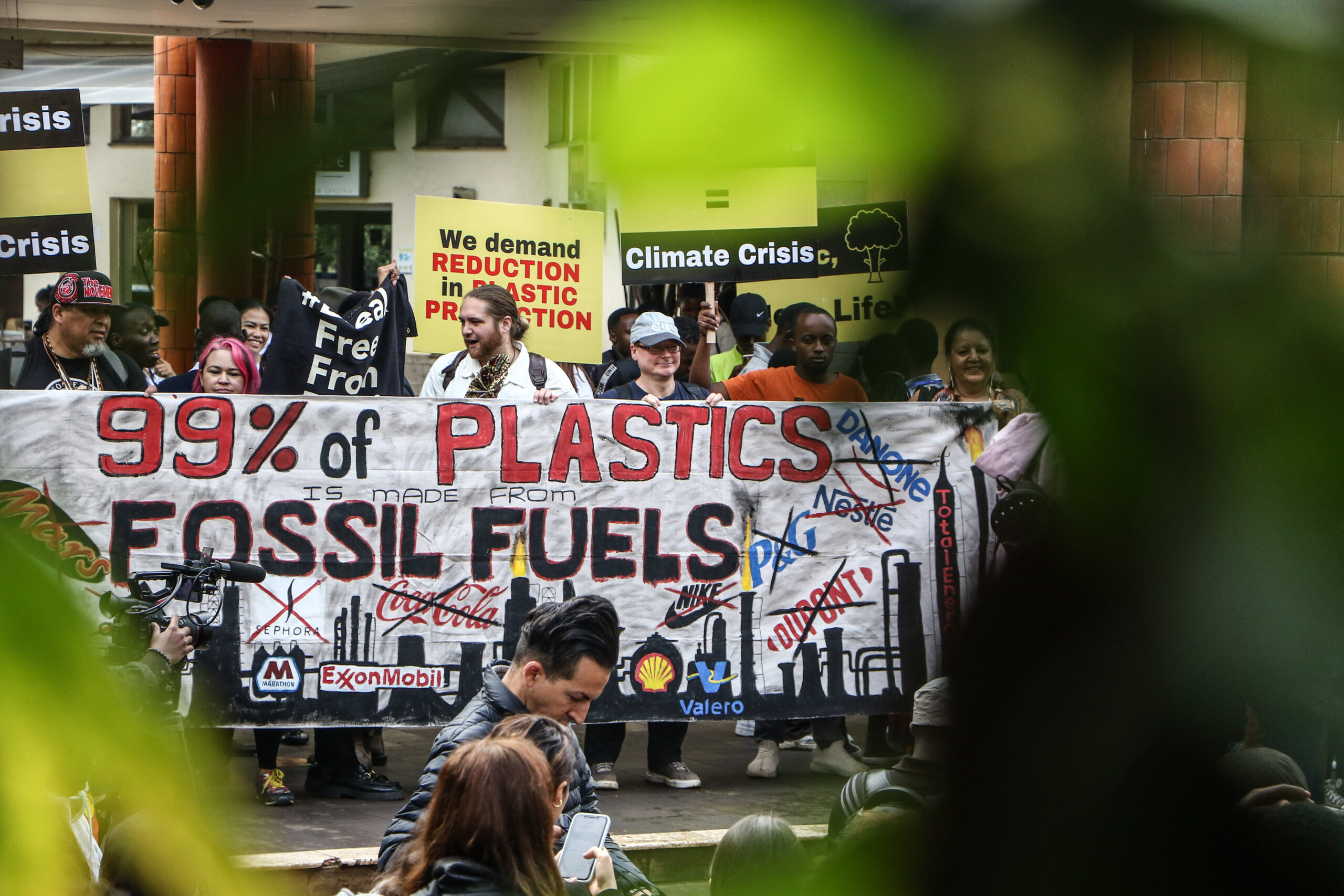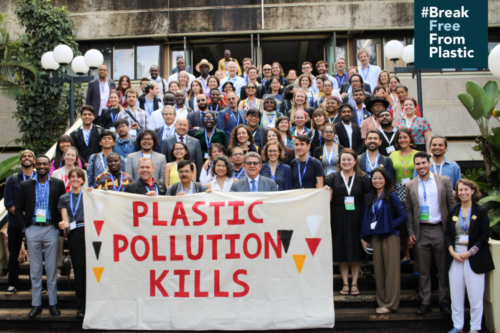Picture by Nicky Davies, “March to End the Plastic Era,” Ottawa, Canada, April 21st, 2024
If we are going to deal with the climate, environmental, and human health consequences of plastic pollution, then the very first thing we need to do is turn off the tap. The Global Plastics Treaty gives us the opportunity to do just that.
The Global Plastics Treaty’s fourth negotiating session in Ottawa in May showed that our movement stands on the precipice of a substantial victory. But it also showed that the fossil fuel industry has woken to this reality and begun to pull out its well-funded playbook in an attempt to block progress.
PSF believes that if philanthropy doubles down on its efforts immediately, we can successfully outmaneuver the industry’s late burst of lobbying and secure an international agreement that will have powerful long-term benefits for climate change and further our many combined agendas.
This event recap details the progress made, the challenges faced, and the next steps toward victory.
Progress
The INC-4 negotiation session was the strongest meeting for civil society to date, showing that the train has left the station, and industry is catching up.
First, the member states actually started negotiating text, a step beyond INC sessions 1-3. Progress in the text was made on issues from plastic waste management to financing and making provisions for a just transition.
There was increased consensus and vocalization from many high-ambition countries, particularly those from the global south, on the need for plastic production reduction targets. This can now be seen in the new Bridge To Busan declaration, which has since garnered a wide swath of powerful countries and stated “the world cannot achieve its goals of ending plastic pollution and limiting global average temperature rise to less than 1.5° Celsius if the unsustainable production of primary plastic polymers is not addressed.” Global south countries remained strong, and many are united in calling for an ambitious treaty.
Progress was seen in the widespread discussion of climate change impacts and the highlighting of new reports on the plastic and climate connections by Lawrence Berkeley National Labs and others.
The negotiations also showed the deep and wide strength of the civil society movement, which had access to negotiators. NGOs provided a unified voice, with frontline communities and EJ groups taking the lead, and the scientists’ coalition for an effective treaty had a visible profile.
Negotiators and NGO groups were successful in mandating intersessional work to continue progress to the end goal, even if it does not go far enough.This point may sound like a small thing, but a small group of pro-fossil-fuel countries has been opposing procedural issues like this to slow down progress.
Last, there is now greater clarity over what countries want within the treaty, but more broadly, policies are in motion, and this scares industry. Change happens only when things are in motion, and the fossil fuel industry’s greatest enemy is change itself.
Backlash
The clearest sign of progress is the actions of our opponents.The fossil fuel industry is now digging in, as is usual at international environmental policy forums, but this time they are not winning. This is not for a lack of effort: 196 lobbyists from the fossil fuel and chemical industries attended the meeting—which is more than the combined 180 representatives of the European Union delegations and up nearly 40% compared to INC-3.
Policymakers also witnessed industry’s major advertising campaigns outside INC-4. While the ads had compelling if predictable messaging—plastic is life, plastic is medicine, plastic is prosperity—in hindsight, the overall effort, compared to civil society’s domination of the media narrative, looked weak.
True, the industry has influenced some important countries and has industry representatives positioned within their delegations. And the U.N. has not yet announced any conflict-of-interest policies that could stop this, so the battle is not yet won. But if you were an outsider and had to choose which side to be on, the smart money says that civil society and our country allies will win a treaty. The only question is how strong it will be.
Next steps
We have the chessboard but are still at risk of losing the game. The text of the negotiations is mixed, but it provides a solid path forward. A treaty covering the entire lifecycle of plastics is still possible with concerted efforts and resources.
Our principal strategies going forward:
- Secure production reduction targets in the final text by working more closely with the countries that signed the Bridge to Busan and adding to their ranks through the advocacy efforts of the grassroots and other NGOs, including the Break Free From Plastics members in 50+ countries.
- Push UNEP to enact conflict-of-interest guidelines in line with other Multilateral Environmental Agreements, require disclosure of affiliations and funding of all non-state actors , and ensure scientists and people are put forward ahead of profit. Civil society will also quantify, expose, and debunk the fossil fuel industry’s ad campaigns, blunting their effect and building the narrative that they are attempting to buy their way to power.
- Ensure fair representation by resolving the rules of procedure in favor of voting, so that the voices of the countries supporting an ambitious treaty are not silenced by the low-ambition countries.
What will it take to achieve this plan? Philanthropic support for the many capable and under-resourced groups that are on the verge of taking down Goliath. Civil society groups need more funder engagement to ensure that civil society continues to dominate the narrative, support high-ambition countries, and provide important technical support for the many small delegations within intersessional work and outside of it.
The Global Plastics Treaty has tremendous potential power, as we’ve seen with many other international environmental agreements. Done right, it will become a mechanism that will forever constrain the dangerous plans of the fossil fuel industry to vastly expand plastic production.
By: Nicky Davies, Executive Director of the Plastic Solutions Fund
Published June 6th, 2024


